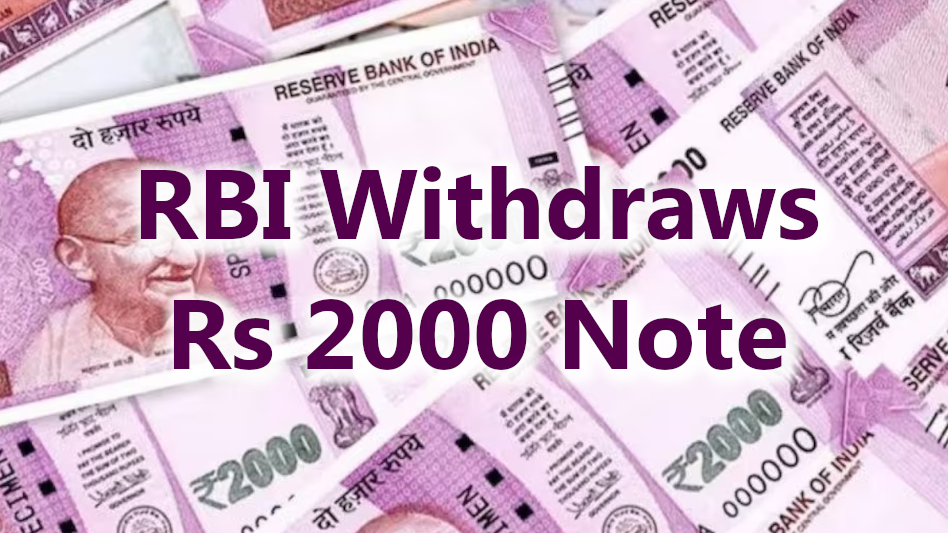In a significant move, the Reserve Bank of India (RBI) has recently announced the withdrawal of the Rs 2000 note from circulation. This decision has sparked widespread discussions and curiosity about the potential benefits and effects on both the economy and the lives of ordinary individuals. In this blog post, we will explore the rationale behind this decision, examine the advantages it may bring, and analyze its potential impact on various stakeholders.
The Rationale Behind the Withdrawal
The decision to withdraw the Rs 2000 note can be attributed to several factors. One key reason is the concern over the rising circulation of high-denomination currency notes in illicit activities such as money laundering, black money transactions, and counterfeit currency operations. By eliminating the Rs 2000 note, the RBI aims to curtail these illegal practices and promote transparency in financial transactions.
Benefits of the Withdrawal
- Combating Black Money: The withdrawal of the Rs 2000 note is expected to strike a blow to those hoarding unaccounted wealth. With the elimination of a high-denomination note, it becomes more challenging to hide large sums of money. As a result, the circulation of black money within the economy may be curbed, encouraging individuals to adopt legal and transparent financial practices.
- Reducing Counterfeit Currency: The Rs 2000 note has been a prime target for counterfeiters due to its high value. By discontinuing this note, the RBI aims to enhance the security of the currency and make counterfeiting more difficult. This measure can help maintain trust in the Indian currency and protect the economy from the adverse effects of fake currency circulation.
- Encouraging Digital Payments: The withdrawal of the Rs 2000 note aligns with the Indian government’s push for digital transactions and a less-cash economy. With the introduction of various digital payment platforms, the reliance on physical currency can be reduced, leading to greater convenience and transparency in financial transactions.
Effects on the Economy
- Short-term Disruptions: The withdrawal of a prominent currency note may lead to short-term disruptions in the economy. Initially, there may be a shortage of cash in circulation, affecting day-to-day transactions and businesses that primarily rely on cash transactions. However, the impact is expected to be temporary, and alternative payment methods can help mitigate the inconvenience.
- Boost to Formal Economy: As black money transactions are curtailed, the formal economy is likely to witness a positive impact. Increased transparency in financial transactions can help in widening the tax base and contribute to the government’s revenue. This additional revenue can be channeled towards infrastructure development, welfare schemes, and other public investments, benefiting the overall economy.
Effects on Normal People
- Shift towards Digital Payments: The withdrawal of the Rs 2000 note may accelerate the adoption of digital payment systems. People will be encouraged to explore various electronic modes of payment, such as mobile wallets, internet banking, and UPI platforms. This shift can lead to increased convenience, reduced dependency on physical cash, and improved financial inclusion for those who previously had limited access to traditional banking services.
- Need for Cash Management: With the discontinuation of the Rs 2000 note, individuals and businesses may need to adjust their cash management strategies. It may be necessary to carry smaller denominations or rely more on electronic transactions. Banks and financial institutions can play a crucial role in educating and assisting people in adapting to these changes smoothly.
Conclusion
The withdrawal of the Rs 2000 note by the RBI holds several potential benefits for the economy and ordinary individuals. While it may initially cause some disruptions, the move is expected to reduce black money, discourage counterfeit currency, and promote digital transactions. By fostering greater transparency and efficiency, this decision aims to strengthen the Indian economy and enhance financial inclusivity. It is important for individuals, businesses, and financial institutions to embrace the change and adapt to the evolving landscape of cash management and digital payments.
